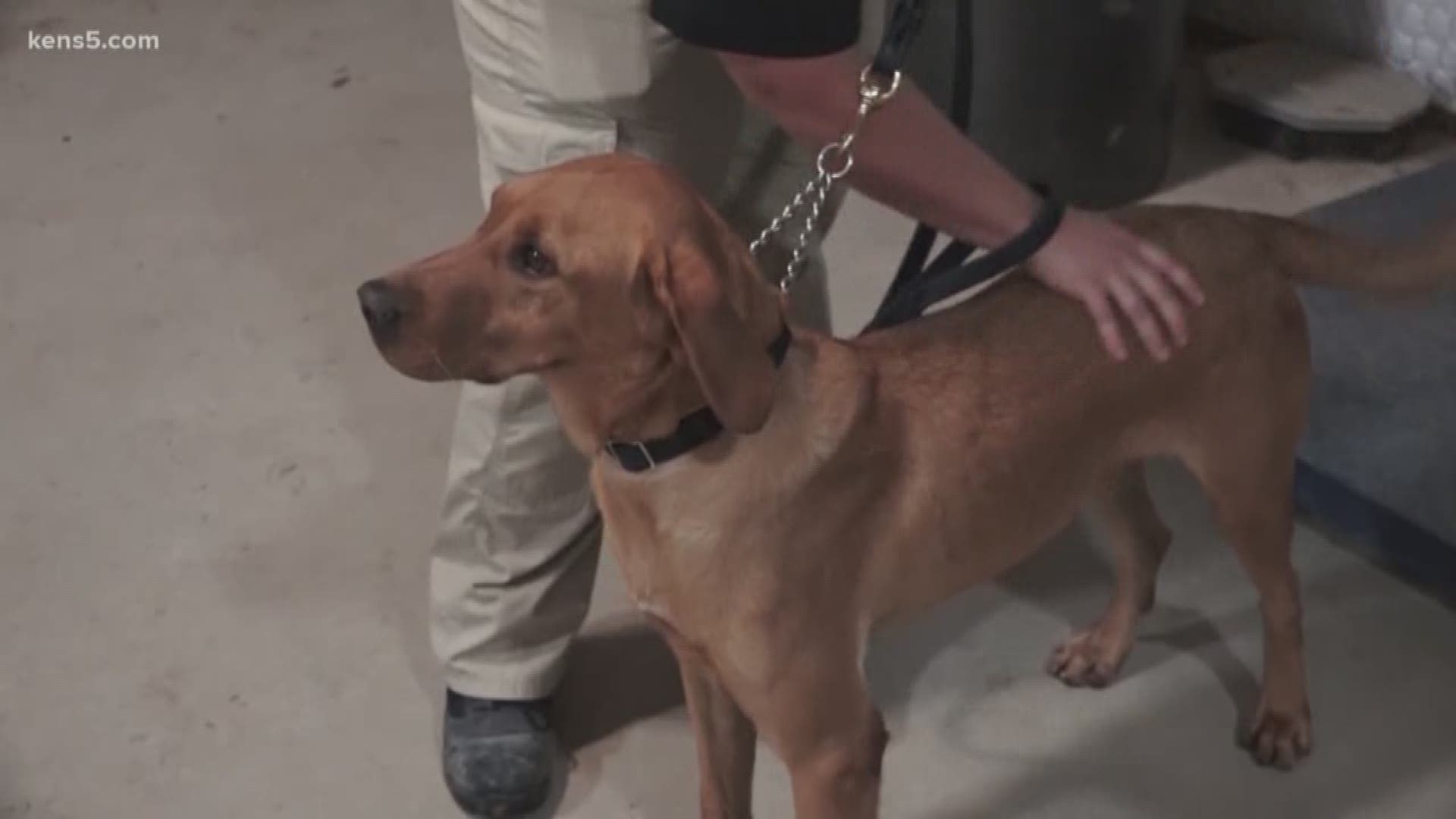The Transportation Security Administration is expanding its K-9 program, adding 50 new dog and handler teams across the nation. The extensive training, which helps teams detect explosive devices in airports and other transportation facilities across the country, happens in San Antonio.
K-9’s can sniff out what airline passengers and even handlers can't find right away.
“You can't see what they're searching," K-9 handler trainee Coray Bell said. "So, to see a dog can find it easily is pretty impressive."
It takes months of dog training, weeks working with their handler, and, on average, $42,000 to take one K-9 team from mock checkpoints to testing at the San Antonio International Airport, and then airports around the country.
"Exposing those K-9’s and the teams to those environments here at San Antonio helps them be successful when they go back to their home airports," said Assistant Supervisor Air Marshal in Charge Johnny Loftin.
At JBSA-Lackland's Canine Training Center, TSA instructors teach dogs how to sniff out explosives, tell them apart from similar smells, and help their handlers keep airports safe.
"It's not quite that easy. You have to study your dog," Bell said. "You know the ins and outs of your dog before you leave here."
Dogs learn how to find explosives stashed away, or on passengers. The TSA constantly updates what they'll smell to make sure they're ready for every new threat that could be thrown their way.
"We have to train like we fight," said Department of Homeland Security TSA K-9 instructor Joshua Araujo. "The enemy's constantly throwing variables at us. With that intel, we have to make sure we implement that."
But TSA inspectors aren't the only dogs who graduate the course. There are police officers too. They're ready for a bus, ferry, train, and anywhere else they might have to search. About 83 percent of canines that start the training graduate.

